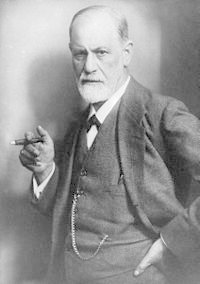
Dear Dr. Hurd,
Regarding your article, ‘An Unexpected Way to Cope With Anger and Temper’ [Daily Dose of Reason July 14]:
This seems like a dangerous way to deal with something. I can understand if you live in a prison like in war movies being unable to do anything about tortures, it might be helpful. I would hope someone does not feel this way about their lives, and if they do they may have put themselves in a bad environment.
But the dangerous part is that those angry thoughts, if thought about enough, can reduce your inhibition to act on them. People who do very bad crimes may have started out like this, for example a pedophile or rapist. The thought and fantasy grows.
On a smaller scale this can happen verbally, if you are inhibited from calling someone a loser or an idiot, but keep saying it to yourself, then you may eventually lower your inhibition enough to say it out loud.
Dr. Hurd’s reply:
You must have missed the part of my article where I distinguish between dwelling on something and fantasizing about something, like a creative writer, in order to make things turn out as you’d like. You’re talking here about dwelling, while I was talking about fantasizing.
You mention criminals. The distinguishing feature of criminals is that they have no conscience. In other words, they have no empathy towards the rights of others, and they feel no remorse for violating those rights. (Check out Dr. Stanton Samenow’s book, ‘Inside the Criminal Mind,’ for details.)
I don’t doubt that a criminally violent person spends a long time playing his angry thoughts over in his mind, before he commits the dirty deed. You cannot blame this, however, on the fact that he thinks and feels. You have to blame this on the fact that he’s amoral, that he has no value system other than using people for his own irrational ends without the legitimate right to do so.
Also, you’d have to explain the example I provided in the article, of the woman who used to say and do impulsive (not criminal, but highly destructive) things until she began to keep it to herself, by playing out in her mind what she’d like to do, rather than actually doing it. I have talked to others who do the same thing.
The premise in what you’re saying is, ‘I’m afraid of my emotions. If I feel or think about something, then I’ll have to act on it.’ This ignores or downplays the intervening variable we have called reason. Reason enables us to utilize our value systems—’Other people have individual rights, I have no right to impose force on another’—to override the fact that we’d like to see people get what they deserve, even if we have no right to initiate any harm against them.
Your basic point is, ‘The more you think about something, the more you’ll reduce the inhibition to act on it.’ The premise here is that thinking about something is what makes you do it. You’re not distinguishing between thoughts and intentions. It reminds me of the ideas of Sigmund Freud. Freud wrote about man as if he were a beast waiting to happen. We’re all impulse-driven killers at heart. The only thing that saves us are largely irrational defense/coping mechanisms, such as repression, projection, reaction formation, according to the Freudian perspective. Puritan mindsets are like that, too. “Don’t think those bad thoughts. If you do, why then you’ll act on them!”
I don’t buy this at all, and never have. Man is a rational animal. He possesses the capacity to choose values, follow principles, and utilize his free will and mind to initiate the process of thought, whenever he so chooses. That capacity is there in anyone, including even a criminal, who for whatever reasons chooses to use his cognitive capacities as a means of exploiting or harming others rather than advancing his own rational interests. My perspective is the complete opposite of the Freudian view, which suggests we can only restrain our wild urges, contained in our emotions, via repression and other neurotic responses. To Freud, we’re all criminals at heart.
Freud did study the impact of dreams, and while his interpretations of dreams were largely bizarre, he was right to recognize their importance. From a rational perspective, dreams allow your mind to play out conflicts and issues it might be difficult to confront consciously, during your waking hours. For example, in a dream you might punch your boss. You’d never do this in reality, because you have no right to do so, and it would violate your own rational interests. Did your dream make it more likely you’ll punch him tomorrow morning? If so, we’d better find a way to block out our dreams, so we don’t lower our inhibitions for wanting to do improper things.
A similar argument is made about video games. ‘Video games promote violence,’ some claim. But most people who enjoy video games tell me it’s a way to vent and release their frustrations. They know they can’t shoot or stab their boss; but it helps them cope to act out their fantasies in the land of fantasy. Millions and millions of people who enjoy video games with violence will never hurt a fly. Sure, some violent criminals enjoy video games; but they would have become criminals regardless. Criminals existed long before video games.
Blindly acting on irrational impulses is no way to live. On that, we can all agree. But we’re not destined or doomed to act on them either. And we don’t need to be frightened of our emotions, intentions or desires.
Be sure to “friend” Dr. Hurd on Facebook. Search under “Michael Hurd” (Rehoboth Beach DE). Get up-to-the-minute postings, recommended articles and links, and engage in back-and-forth discussion with Dr. Hurd on topics of interest.
